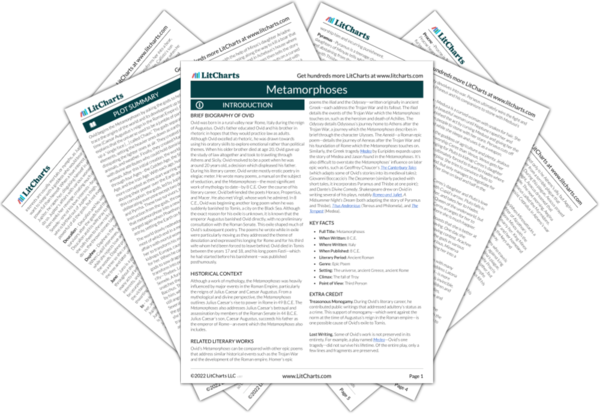Next
Summary
Metamorphoses Study Guide |
Next
Summary
|
Welcome to the LitCharts study guide on Ovid's Metamorphoses. Created by the original team behind SparkNotes, LitCharts are the world's best literature guides.

Treasonous Monogamy. During Ovid’s literary career, he contributed public writings that addressed adultery’s status as a crime. This support of monogamy—which went against the norm at the time of Augustus’s reign in the Roman empire—is one possible cause of Ovid’s exile to Tomis.
Lost Writing. Some of Ovid’s work is not preserved in its entirety. For example, a play named Medea—Ovid’s one tragedy—did not survive his lifetime. Of the entire play, only a few lines and fragments are preserved.